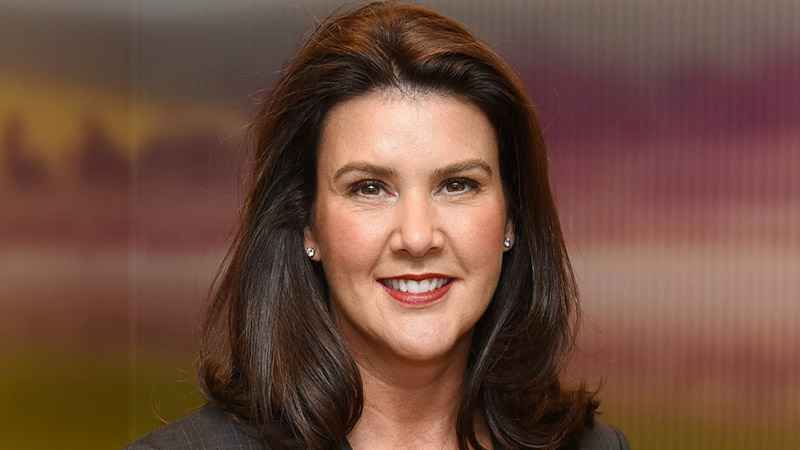New SMSF changes highlight coming reforms in government’s super plan, says Hume
Senator Jane Hume has affirmed the government’s plan to implement key changes to the SMSF sector, including the six-member bill, as part of plans to improve super in 2021.
Speaking at the SMSF Association National Conference 2021, Minister for Superannuation and Financial Services Jane Hume stated it will be the government’s role to get the policy settings right in the upcoming changes for the SMSF sector.
Ms Hume stated that one of the big-ticket reforms that will feature in the early part of the parliamentary year will be the Your Future, Your Super changes and the element that is particularly relevant to SMSFs is the best financial interests duty.
“Superannuation funds should be held to the highest standards of accountability and transparency and SMSF trustees are no exception,” she said.
“To that end, the best interests duty will be amended to the best financial interests duty, to remove any doubt about how super fund trustees should use members’ money.
“This change will ensure super funds are more accountable for their decisions and prioritise members’ financial outcomes.”
Ms Hume also affirmed the government’s reintroduced bill to Parliament to increase the maximum number of members in SMSFs and small APRA funds from four to six and will be a priority in the upcoming Parliament sittings.
“This measure will support families of all sizes using SMSFs as a vehicle for controlling their own superannuation savings and investment strategies,” she said.
“The government understands that this is a barrier and is committed to seeing passage through the Senate this year. This measure is about increasing choice and flexibility, particularly for larger families who don’t currently have the option of including all members of their family in their SMSF.”
SMSF reforms making continued progress
Ms Hume said she was encouraged to see the continued progress for SMSFs, with ASIC’s new estimates of the cost for the average user having been refined and are more in line with people’s expectations.
“We also now know that costs of running a self-managed super fund have decreased since 2013. Rice Warner’s report found SMSFs with balances as low as $200,000 are now able to be cost-competitive with APRA-regulated funds,” she said.
Ms Hume also said that developments in technology and the fintech sector have also played a major role in driving many of these costs down.
“And they will continue to do so. The lower the costs of running an SMSF becomes, the more people are attracted to the sector and the bigger and more vibrant the sector becomes.”
In the address, Ms Hume pointed to the highlights of the Retirement Income Review, which was released in November and confirmed the importance of the incoming retirement income covenant that SMSFs needed to consider.
“Having postponed the introduction of the covenant during the COVID-19 response last year and to allow time for further consultation, the government is continuing to progress this important reform, and we look forward to working with the SMSF Association on the covenant in the near future,” she said.
Ms Hume said it is imperative that trustees of all funds support their beneficiaries by developing strategies that carefully consider the retirement income needs and preferences of different cohorts of their members.
“That is what the covenant is about. Having a strategy for retirement is as applicable to SMSF members as it is to members of large funds,” she said.
“Indeed, many Australians choose to set up an SMSF precisely at the point of entering retirement when they have more time to manage their savings.
“Of course, trustees don’t need to wait for the covenant to be legislated to take action. There’s nothing stopping trustees from developing strategies that meet their members’ retirement needs now, and I’d encourage them to do so.”
Ms Hume also confirmed that the government would be amending the law to ensure retirees who have commuted and restarted certain market-linked pensions, life expectancy pensions and similar products are treated appropriately under the transfer balance cap.
“As you may recall, the changes the government made in 2016 resulted in an unintended outcome that meant individuals who commuted and restarted one of these products may have been inadvertently caught in a perpetual excess transfer balance cap position which could not be resolved,” she said.
“This measure will enable retirees with these products to make the necessary partial commutation to remove the excess. The government will also ensure that excess transfer balance tax for retirees in this situation will not apply until after the amending legislation has received royal assent.”

Tony Zhang
Tony Zhang is a journalist at Accountants Daily, which is the leading source of news, strategy and educational content for professionals working in the accounting sector.
Since joining the Momentum Media team in 2020, Tony has written for a range of its publications including Lawyers Weekly, Adviser Innovation, ifa and SMSF Adviser. He has been full-time on Accountants Daily since September 2021.








